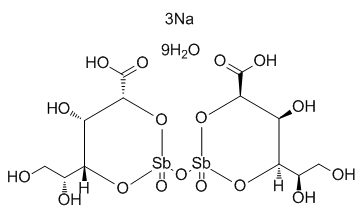On post-translational activation and stability of cell cycle regulatory proteins. To identify downstream molecular actors involved in PTEN mediated cell cycle modulation, a prostatic cancer cellular model expressing PTEN cDNA was recently used. This modification led to a significant inhibition of cell proliferation due to cycle arrest in the G1 phase. Gene expression analysis subsequent to PTEN reintroduction, coupled with phosphorylation status of downstream molecular targets, suggest that PTEN physiologically regulates cell cycle related proteins, through pAKT dependent and independent ways. E2F2, cdc25a, Cyclin G2 and RBL2 proteins are among them. The aim of the present study was to shed light on the role of PTEN pathway on cell cycle regulation in GSCs through a cellular differentiation model. Phosphoproteomics profiling of different GSCs lines, using reverse phase protein microarrays, indicates a heterogeneous basal activity of PTEN and related molecules. Transcriptomics profiling of GSCs induced to differentiate demonstrates specific molecular changes in PTEN positive cells, that are not observed in cells lacking its activation. The most modulated transcripts suggest a post-transcriptional regulation model, which involves cdc25a as the main target. A diagnosis of glioblastoma multiforme, established histologically according to the WHO classification, was the eligibility criteria. Patients AbMole Metyrapone characteristics are summarized in table 1. Tumor samples were obtained by complete or partial resection before the initiation of treatment with radiation and chemotherapy. The expression of both the proliferation marker Ki-67 and of tumor protein 53 were characterized on tumor specimen by  immunohistochemistry on deparaffinized sections using the avidin-biotin-peroxidase complex methods, anti-p53 monoclonal antibody and AbMole Mepiroxol anti-epidermal growth factor receptor monoclonal antibody. Tumors were considered p53 deficient if immunoreaction stained the nuclei of less than 5% of cells. Tumors showing moderate-to-strong immunostaining for EGFR in.20% of cells were considered EGFR positive. O6-methylguanine-DNA methyltransferase promoter methylation patterns were assessed on genomic DNA extracted from paraffin-embedded tissue by methylation-specific: it has been shown that the DNA repair protein MGMT influence the resistance of glioblastoma cells to alkylating agents, such as nitrosoureas and temozolomide thus representing and important prognostic and therapeutic indicator. Stem cells tightly regulate cell cycle progression in order to remain quiescent inside their cellular niche with progress occurring only when external stimuli indicates the need for cell growth or for the replacement of damaged or senescent cells.
immunohistochemistry on deparaffinized sections using the avidin-biotin-peroxidase complex methods, anti-p53 monoclonal antibody and AbMole Mepiroxol anti-epidermal growth factor receptor monoclonal antibody. Tumors were considered p53 deficient if immunoreaction stained the nuclei of less than 5% of cells. Tumors showing moderate-to-strong immunostaining for EGFR in.20% of cells were considered EGFR positive. O6-methylguanine-DNA methyltransferase promoter methylation patterns were assessed on genomic DNA extracted from paraffin-embedded tissue by methylation-specific: it has been shown that the DNA repair protein MGMT influence the resistance of glioblastoma cells to alkylating agents, such as nitrosoureas and temozolomide thus representing and important prognostic and therapeutic indicator. Stem cells tightly regulate cell cycle progression in order to remain quiescent inside their cellular niche with progress occurring only when external stimuli indicates the need for cell growth or for the replacement of damaged or senescent cells.
Investigating the PTEN-dependent cell cycle regulation reported the the influence of PTEN/Akt signaling pathway
Leave a reply